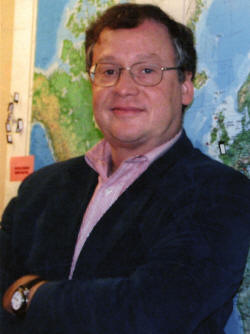University
Communications
Office
Arkansas State University
Jonesboro,
Arkansas
Staff
Markham Howe
Sara McNeil
Gina Bowman
(870) 972-3056
fax (870) 972-3693
More information:
NewsPage
Links to News Releases
& Announcements
Campus Calendar
Public activities at ASU
About
ASU
Overview, history
and more |
Middle East Studies Committee presents Harvard's
Dr. Steve Caton on Feb. 9
Feb 3, 2009 --
Arkansas State University-Jonesboro’s Middle East
Studies Committee will host a speaker, Monday, Feb. 9, at 7 p.m. in the
Reng Studen t Services Center/Student Union Auditorium, 101 North
Caraway Road, Jonesboro. This lecture is free, and the public is invited
to attend. t Services Center/Student Union Auditorium, 101 North
Caraway Road, Jonesboro. This lecture is free, and the public is invited
to attend.
Dr. Steve Caton, professor of anthropology and director of the Center
for Middle East Studies at Harvard University, will present "From T.E.
Lawrence to Special Operation Forces: The White Sheik as a Modular Image
in 20th Century Popular Culture." While Caton’s earliest work was in
anthropological linguistics and poetics, he “fell under the spell of
Hollywood cinema,” according to his
website, and that interest, coupled with various theories of
orientalist knowledge, resulted in his showing of David Lean’s epic
film “Lawrence of Arabia” to his students. When his students pointed out
the film’s multitude of representative complexities, he decided to pursue a full-fledged film analysis. As
Caton says, the endeavor “took me into the fascinating labyrinths of
film theory and cultural studies,” and resulted in his book, “Lawrence
of Arabia: A Film's Anthropology (1999).” For additional information,
see Caton's site
(http://www.fas.harvard.edu/~anthro/social_faculty_pages/social_pages_caton.html).
Caton teaches one or two courses in the main areas of his research each
year, including Harvard’s Anthropology 104, "Language and Culture,” an
introduction to the field of anthropological linguistics, with an
emphasis on structuralism and the ethnography of communication. He also
offers Anthropology 210, "The Anthropology of Events," which asks how
events can become the objects of analysis in both disciplines as well
broader issues such as time and memory. Anthropology 120, "Anthropology,
Cultural Studies, and Film," grapples with the formulation of "film
industries" paying particular attention to Hollywood, but also exploring
Egyptian and Iranian film industries.
For more
information, contact Dr. Erik Gilbert, History, at (870) 972-2137, or
e-mail him at
egilbert@astate.edu.
###
|
